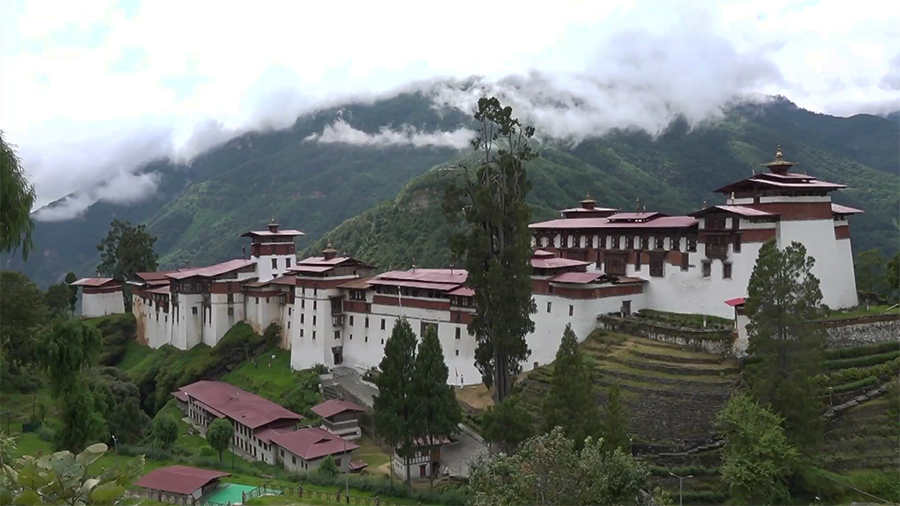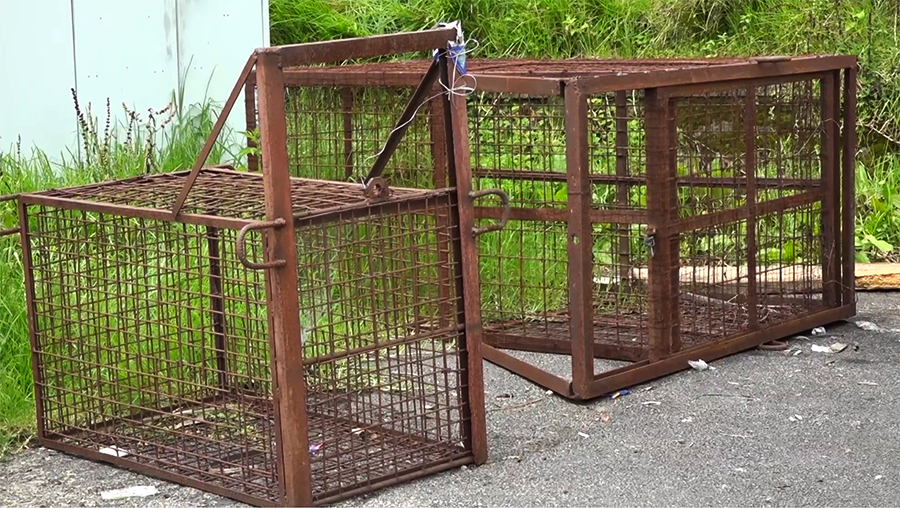 The monkey menace that the Trongsa Dzong struggled with for quite some time has now been addressed. Until last year, monkeys kept frequenting the dzong premises, posing risks of disasters such as fire accidents. It was also a nuisance for the visitors, monks, and the district administration officials. The authorities resorted to relocating the monkeys after several other measures failed to solve the issue.
The monkey menace that the Trongsa Dzong struggled with for quite some time has now been addressed. Until last year, monkeys kept frequenting the dzong premises, posing risks of disasters such as fire accidents. It was also a nuisance for the visitors, monks, and the district administration officials. The authorities resorted to relocating the monkeys after several other measures failed to solve the issue.
 Today, without any monkeys in sight, the dzong premises restored the tranquillity it once lost.
Today, without any monkeys in sight, the dzong premises restored the tranquillity it once lost.
Earlier, monkeys used to appear from the nearby forest and enter the dzong through windows and other open spaces, turning the dzong premises into their dwelling.
The district administration undertook several measures, such as the installation of electric fencing and barbed wire fencing around the dzong to keep them at bay. But these measures were ineffective.
The district administration, after carrying out a thorough study about the issue, began relocating them from mid of 2023. It took them around six months to relocate the monkeys.
 Officials used metal wire mesh boxes to trap the monkeys. An official says they have handled it with care to ensure no monkey is harmed during the process.
Officials used metal wire mesh boxes to trap the monkeys. An official says they have handled it with care to ensure no monkey is harmed during the process.
Jigme Chophel, the Chief District Livestock Officer of Trongsa said, “We have placed the boxes at places where monkeys mostly appear and gather. They get trapped easily. We have kept fruits and vegetables inside the box to attract and trap the monkeys. The trap gets closed as soon as around five to six monkeys get inside it.”
While officials declined to name the relocation site, they say the monkeys have been moved, in batches, to some safe sites. Although district officials’ records found that there were around 160 monkeys within the dzong premises, they have been able to relocate only over 40 monkeys. The remaining, they say, disappeared gradually.
The district administration also conducted awareness and consultations with local communities, urging them to refrain from feeding. They say this could have also led to the sudden disappearance of most of the monkeys.
“We have relocated the monkeys to places which are around two hundred kilometres from here. We also did not abandon them carelessly. We have been mindful of the consequences on both monkeys’ lives and the impact of relocating to other residential areas. We have released them in dense forests around four to five kilometres from road points,” said Jigme Chophel.
“Monkeys used to enter temples and monks’ residences. They used to enter through windows, even if we left them slightly open. They used to scatter all of our belongings inside, posing high risks. However, today, it is peaceful here without the monkeys. We can maintain cleanliness and live in peace even if we leave the windows open,” said Trongsa Rabdey’ Sungkhorp Sonam Penjor.
This initiative has not only benefited the dzong but also the nearby communities. The monkeys were troublemakers for shopkeepers and residents as well.
“Monkeys used to enter my shop along with the customers. So, I had to invite customers inside and close the door immediately to avoid monkeys. Things have become better now without the monkeys,” said Pumpha Pokwal, a shopkeeper in Trongsa town.
Although the issue has been resolved for the time being, both residents and officials remain concerned that the monkeys may reappear, with locals reporting sightings of monkeys in the nearby areas.
Changa Dorji, Trongsa
Edited by Phub Gyem








